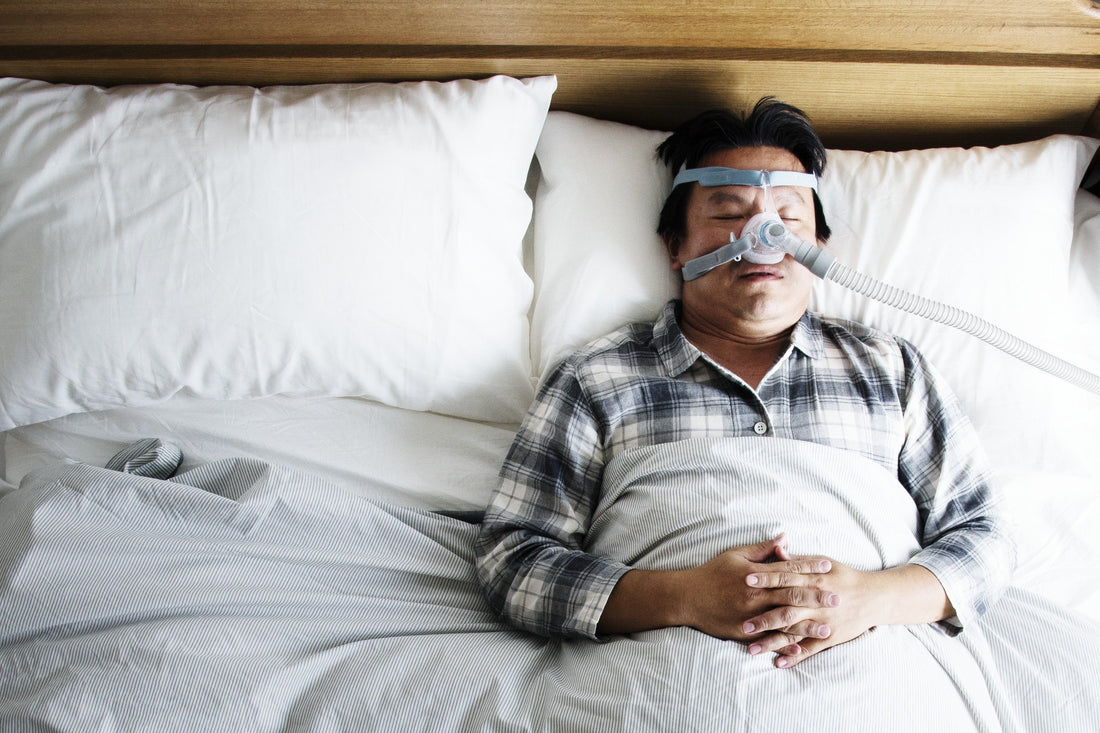Sleep apnea is one of the fastest-growing health problems in the world, affecting an estimated one billion people. In Finland alone, hundreds of thousands of people live with the condition.
Sleep apnea study at Turku University Hospital
The study was carried out at Turku University Hospital and the University of Turku. It involved 60 adults with mild to moderate sleep apnea, of whom 33 completed a 12-week program using the WellO2® breathing trainer twice daily.
The method combines inspiratory and expiratory resistance training with warm steam inhalation, designed to strengthen the respiratory muscles and hydrate the mucous membranes.

The effects of WellO2 breathing training on sleep and vitality
Validated questionnaires and objective measurements showed:
- Better sleep quality: PSQI −2 points
- Less insomnia: ISI −1.8
- Reduced daytime sleepiness: ESS −1.6
- Improved mental well-being: GHQ-12 −7.9
- Improved lung function: FEV₁ increased from 3.6 to 3.8 litres (p=0.04)
In addition, patients reported fewer morning headaches, less irritability and a reduced need for daytime naps – as well as relief from heartburn and coughing. Several also mentioned an improvement in libido.
“Significantly, patients reported better sleep quality and less daytime fatigue, as well as relief from symptoms such as morning headaches and irritability. This combination of improved sleep and broader wellbeing-related benefits is noteworthy. Although the study involved a small number of participants, the results suggest that steam-assisted breathing exercises may have the potential to improve the management of symptoms in patients with sleep apnea”, says Dr Usame Al-Rammahi, who took part in the study.
Why new approaches are needed in the treatment of sleep apnea
Although this was a relatively small pilot study, the results are promising. They suggest that steam-assisted breathing training may offer a new, drug-free supportive method for people with sleep apnea.
The primary treatment for sleep apnea is the CPAP device, but for many patients it can be difficult to use consistently in everyday life. A method that strengthens the respiratory muscles and hydrates the airways could help relieve symptoms while also supporting long-term CPAP adherence by making it more tolerable.
Sleep apnea is a rapidly growing international health challenge, estimated to affect nearly one billion people worldwide. That is why every new, safe and easy-to-use non-drug method can play an important role – not only in easing symptoms, but also in supporting better sleep and everyday well-being.

